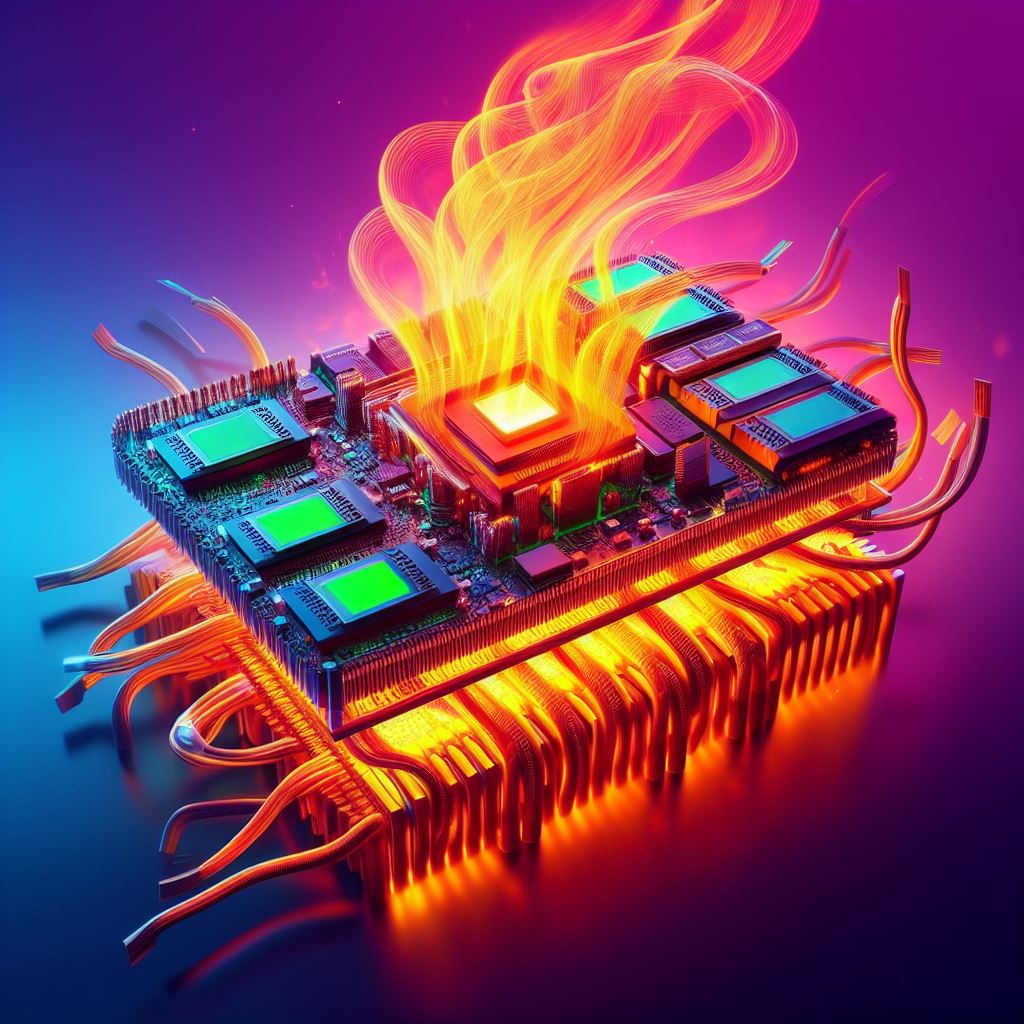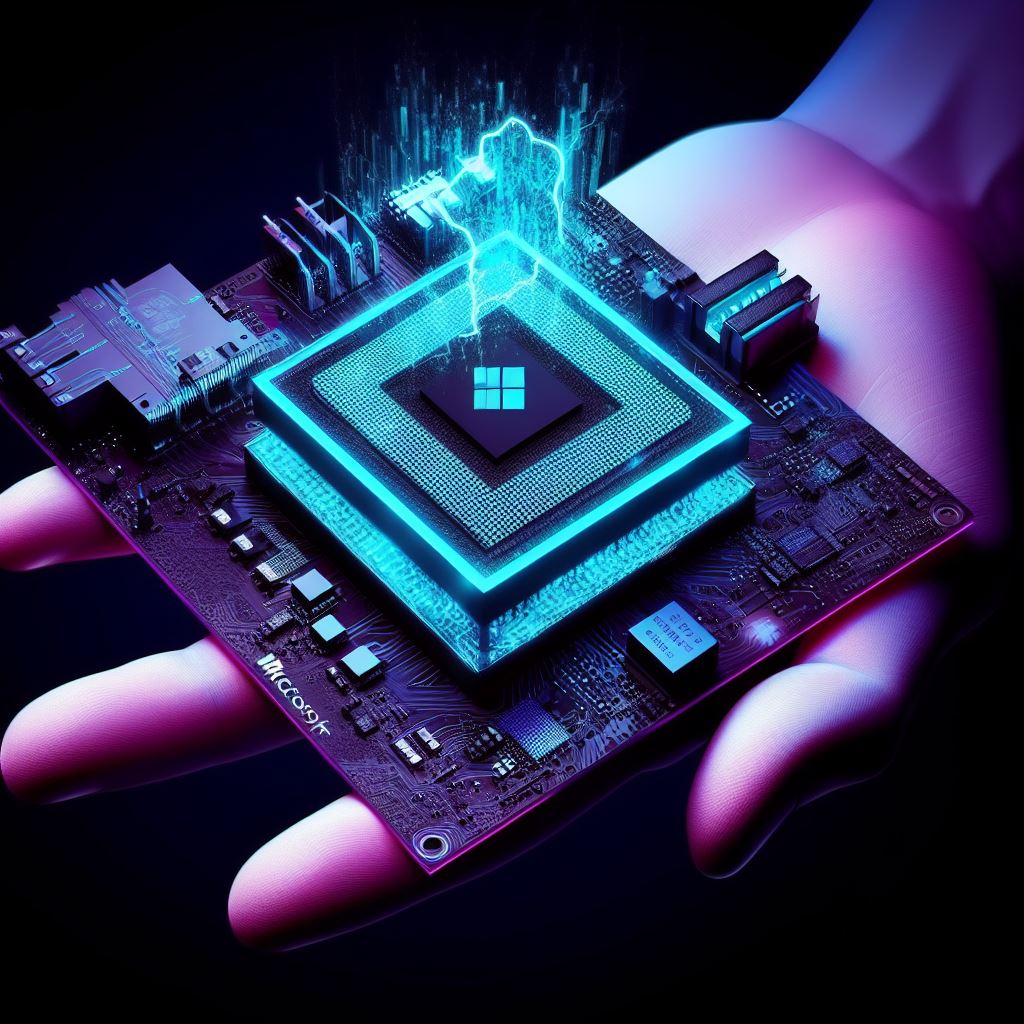Microsoft Unveils Cutting-Edge AI and Computing Solutions for Azure
Microsoft, a key player in the tech industry, has recently unveiled groundbreaking innovations at its Ignite conference in Seattle. The company is set to provide its Azure cloud clients with an array of choices for standard computing workloads and artificial intelligence (AI), effectively challenging the dominance of market leader Amazon.
The Maia 100 AI Chip: Competing with Nvidia’s Powerhouse

Microsoft is stepping into the AI arena with its first custom chip, the Maia 100 artificial intelligence processor. This chip is poised to rival Nvidia’s highly sought-after AI graphics processing units, marking a significant leap in Microsoft’s capabilities.
Cobalt 100 Arm Chip: Powering General Computing Tasks
In addition to the Maia 100, Microsoft is introducing the Cobalt 100 Arm-based chip, designed for general-purpose computing tasks. This chip is positioned to compete with established players in the market, including Intel processors.
Cloud Infrastructure Evolution: Microsoft’s Strategic Move

Cash-rich technology companies are increasingly offering clients more options for cloud infrastructure, enabling them to run applications seamlessly. Microsoft, with a substantial cash reserve of about $144 billion as of October, is making significant strides in this direction, holding a 21.5% cloud market share in 2022, second only to Amazon.
Timeline and Availability: Commercial Release in 2024
Microsoft’s commitment to innovation is evident in its plan to make virtual-machine instances running on Cobalt chips commercially available through the Azure cloud in 2024. However, the timeline for releasing the Maia 100 is yet to be disclosed.
AI Chip Landscape: Learning from Industry Leaders

Reflecting on industry trends, Microsoft’s move follows the successful adoption of the Graviton Arm chip by cloud leader Amazon Web Services (AWS) five years ago. The Maia and Cobalt chips are poised to continue this trajectory, providing cutting-edge solutions to meet the evolving demands of cloud computing.
Addressing GPU Shortages: Specialized AI Chips to the Rescue
In the face of GPU shortages, specialized AI chips from cloud providers, including Microsoft, emerge as potential solutions. Unlike competitors Nvidia and AMD, Microsoft and its cloud computing peers are not allowing companies to purchase servers containing their chips, maintaining a unique market approach.
Customer-Centric Innovation: Maia Chip Design
Microsoft’s customer-centric approach is evident in the design of the Maia chip, tailored to meet the specific needs of AI computing. This chip is undergoing rigorous testing, including its performance in powering the Bing search engine’s AI chatbot, GitHub Copilot coding assistant, and the GPT-3.5-Turbo language model from Microsoft-backed OpenAI.
Liquid-Cooled Hardware: Introducing Sidekicks
Complementing the Maia chip, Microsoft has introduced custom liquid-cooled hardware named Sidekicks. Designed to fit seamlessly into racks alongside Maia servers, this innovation enhances efficiency without the need for retrofitting.
Cobalt Processors Outperforming: Early Success in Testing
Microsoft’s Cobalt processors are showing promising results, outperforming Azure’s existing Arm-based chips by 40%, according to early testing. Teams app and Azure SQL Database service are among the applications benefitting from this improved performance.
Navigating Cloud Spending Efficiency: Industry Trends
Amid rising prices and interest rates, companies are seeking ways to optimize cloud spending. AWS customers, for instance, have found success with the Graviton Arm-based chips, achieving a 40% price-performance improvement. Microsoft aims to replicate this success with Cobalt processors over time.
Future Prospects: Microsoft’s Role in Shaping the Ecosystem
Microsoft’s commitment to transparency and collaboration is evident in the sharing of chip specifications with the ecosystem and partners. This move is poised to benefit all Azure customers, fostering a collaborative environment for technological advancements.
Frequently Asked Questions
Q: When will the Maia 100 be released for commercial use?
A: Microsoft has not provided a specific timeline for the commercial release of the Maia 100 but plans to make Cobalt chips available on Azure in 2024.
Q: How do Cobalt processors compare to existing Arm-based chips in terms of performance?
A: Early testing indicates that Cobalt processors outperform existing Arm-based chips by 40%, showcasing their potential for enhanced performance in various applications.
Q: How does Microsoft plan to address the challenges of limited data center space with its new innovations?
A: Microsoft’s introduction of liquid-cooled hardware, Sidekicks, is designed to optimize data center space without the need for retrofitting, addressing challenges associated with GPU placement.
In conclusion, Microsoft’s unveiling of the Maia AI processor and Cobalt Arm-based chip signifies a major leap forward in the realm of cloud computing and artificial intelligence. With a customer-centric approach, strategic innovations, and a commitment to collaboration, Microsoft is poised to shape the future of the industry.
